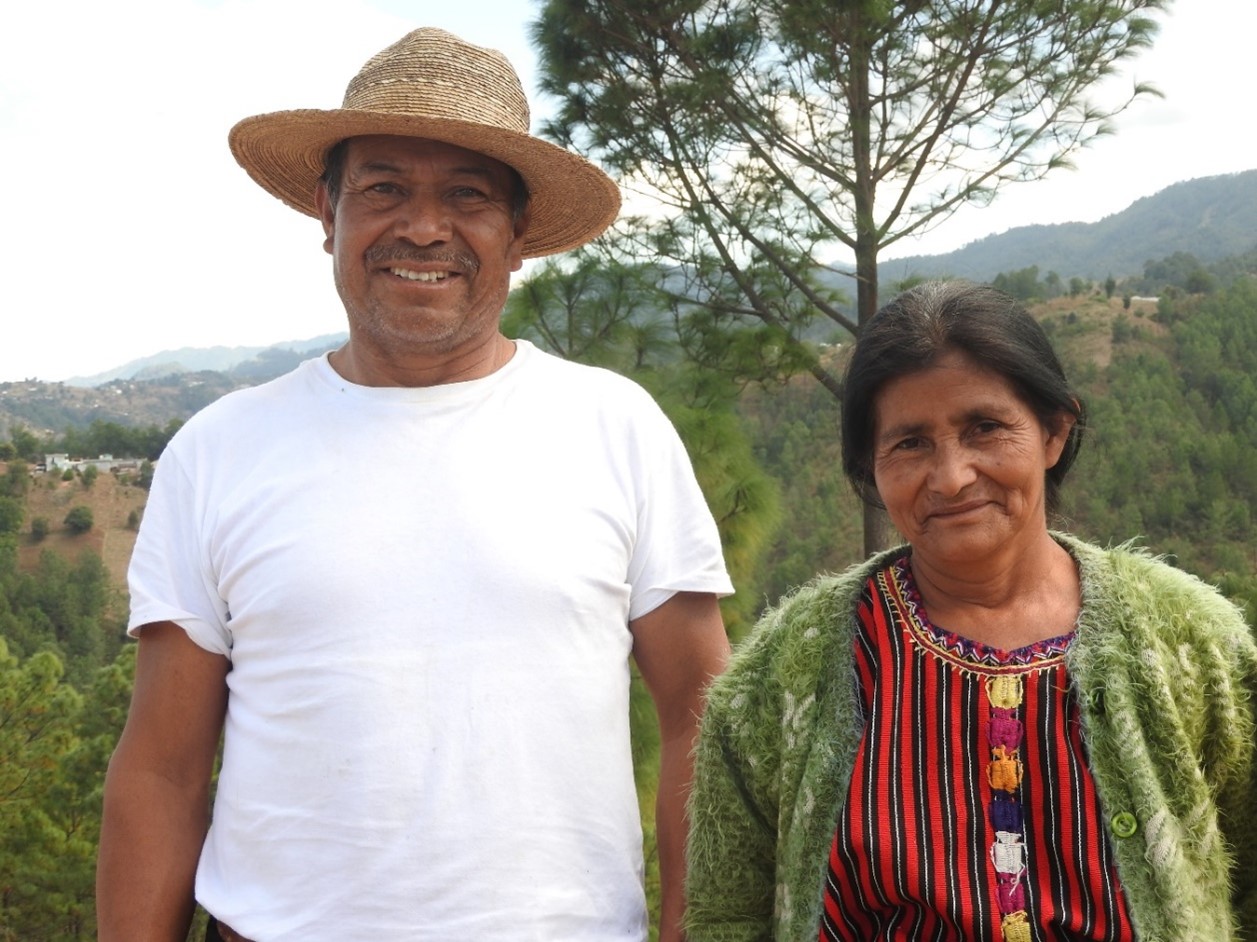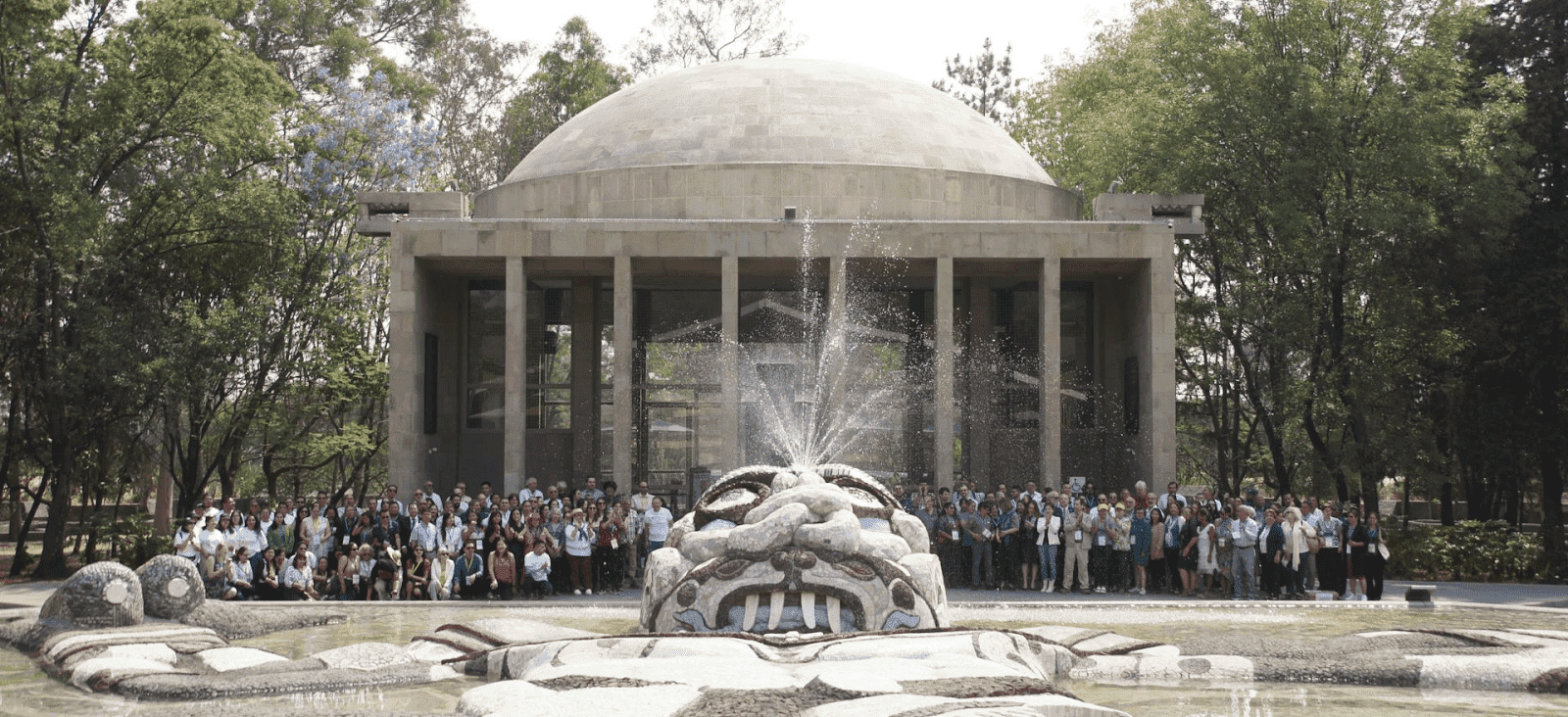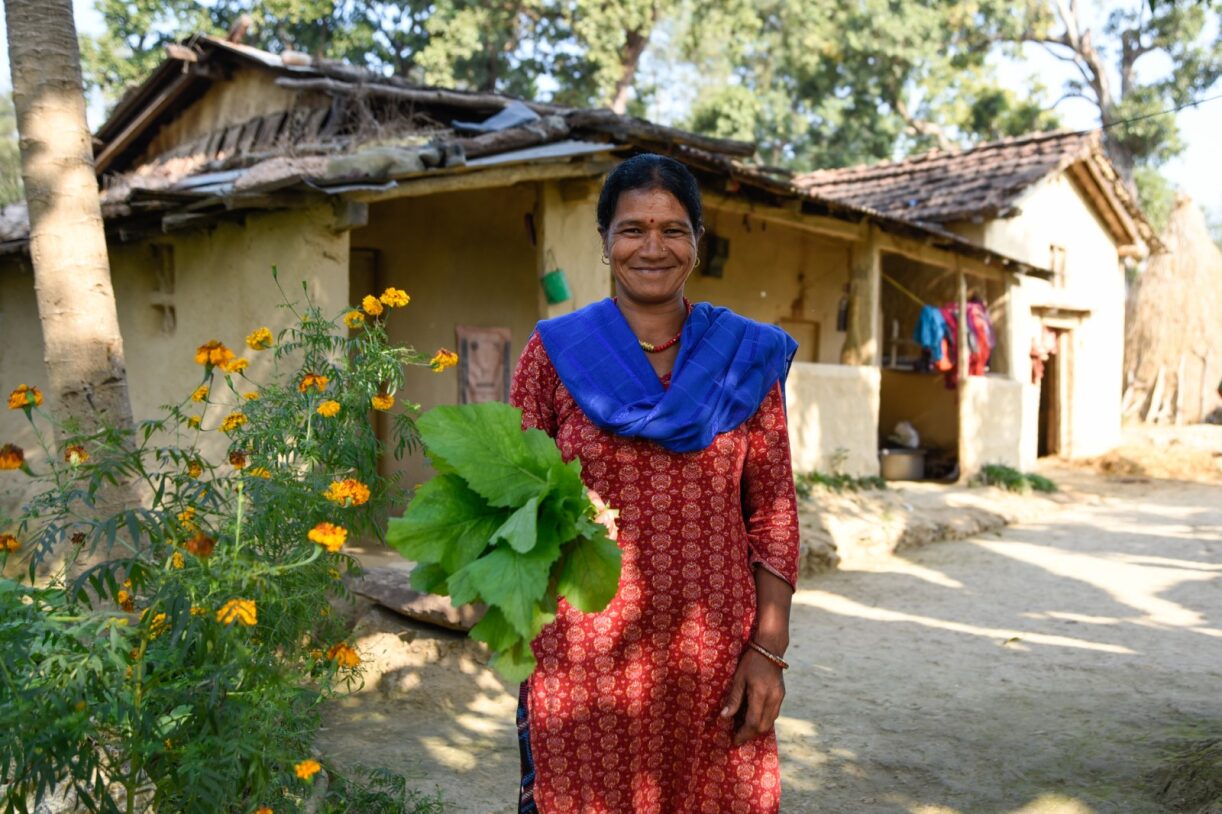International Women’s Day 2023: Celebrating Indigenous women leaders in inclusive conservation
Around the world, Indigenous and local women are the backbone of their communities and play integral roles as knowledge holders, guardians of natural resources, and defenders of ancestral lands and collective rights.
The Inclusive Conservation Initiative (ICI), a Global Environment Facility (GEF)-funded initiative co-implemented by Conservation International and IUCN works alongside Indigenous Peoples and Local Communities (IPs and LCs) to support the scaling of their conservation of globally significant biodiversity and ecosystems. ICI recognizes the knowledge and the agency of Indigenous and local women and values gender equality and women’s empowerment as vital to the achievement of successful conservation outcomes.
This International Women’s Day, representatives from five (of nine) ICI subprojects have interviewed women leaders working in their communities. They share insights about their responsibilities, describe why ICI is important for Indigenous women, and their ideas on why Indigenous women’s contributions are needed in conservation projects and how women can advance the push for direct IP and LC finance.
Read their testimonials, and join us on a journey through Sub-Saharan Africa, Asia, and Meso-America.
Sub-Saharan Africa
Tanzania: Ujamaa Community Resource Team (UCRT)
Paine Makko, Director
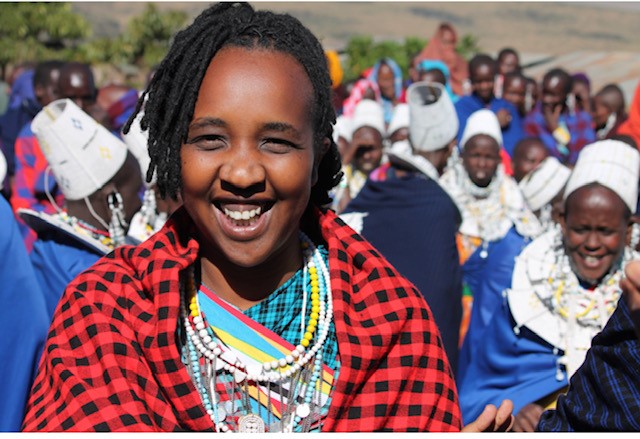 Photo: UCRT
Photo: UCRT
“Indigenous women play a major role in the use and management of natural resources for cooking and energy, healing (herbal medicine), Maasai house building, feeding livestock, cultural decoration, water use, and rights to own, use, and manage land and natural resources.
Leaving women behind means missing out on key contributions by key people in society.
At UCRT, my role consists in promoting best practices in managing territories of life while advocating for the rights and space for Indigenous Peoples to promote Indigenous knowledge in the conservation paradigm, which makes conservation sustainable and meaningful for both livelihood and biodiversity. My other key role is supporting the developing, designing, governing, and implementing of a project guided by the Indigenous communities themselves.
Women need a strong social structure for movement building to gain benefits from nature-based finance and this requires systemic change in local, national, and global arenas. IPs and LCs at large need to comprehend benefits rights from available opportunities for financing, such as tourism and carbon business.
In this regard, ICI means leaving no one behind when it comes to conservation. It means IPs and LCs are an integral part of the conservation that this project takes into account and promotes. ICI is about lP and LC’s contribution to conservation and how these efforts can be boosted.”
Kenya: Indigenous Movement for Peace Advancement and Conflict Transformation (IMPACT)
Vivian Silole, Gender and Natural Resource Manager
 Photo: Nina Lakhani
Photo: Nina Lakhani
“I like to refer to Indigenous women as the ‘hidden minds and hands” in conservation
that have been invisible since time immemorial, and inclusive conservation means the start of a revolution where their roles and contributions are finally appreciated and recognized.
For instance, women often play hidden roles in decision-making at the household level, and perform leading roles in traditional rituals and ceremonies, such as fertility rituals for those women who can’t bear children. During long droughts, women also lead ceremonies that are believed to restore the ecosystem's health.
To Indigenous women, ICI means that they are no longer left out of any decision-making processes related to natural resources management, governance and conservation. This means that they are able to be on the front line on matters related to conservation planning, resources management and governance, access to information and decision-making platforms, and equally benefit from conservation efforts.
Inclusive conservation is an opportunity to address the unique challenges a local Indigenous woman faces in her day-to-day life, and involving them and leveraging on their traditional knowledge will go a long way in attaining gender equity and equality. In this regard, I believe empowering IP and LC women to empower each other to advocate for their own inclusion, build women networks and actively engage in decision-making processes is an enabling step in advancing the push for direct IP and LC funding.”
Democratic Republic of the Congo (DRC): Alliance Nationale d'Appui et de Promotion des Aires et territoires conservés par les Peuples Autochtones et Communautés locales en République Démocratique du Congo (ANAPAC)
Madame Narcisse Chipere, Indigenous woman leader of Nord-Kivu
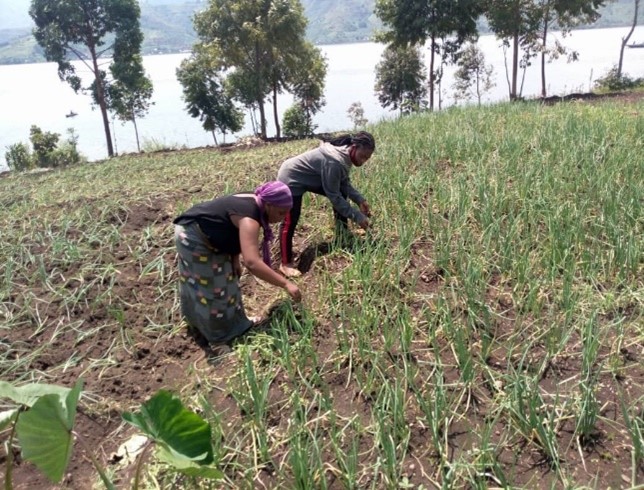 Photo: ANAPAC
Photo: ANAPAC
“I am part of the Steering Committee of the project in the eastern landscape of the DRC and I am also a member of the Pygmy Indigenous community that benefits from this project in this area.
Conservation is everyone's business (men’s and women’s).
Traditional conservation practices are shared and internalized by both men and women, and passed on to young girls and boys without discrimination. It is therefore necessary that women apply their knowledge for an inclusive and sustainable conservation.
We believe that actors involved in conservation, including organizations and donors, should directly fund conservation projects that take into account the efforts of Indigenous women and local communities. They should also provide direct funding to Indigenous women and local communities to carry out the projects they design to contribute to conservation and value their knowledge and talents.
For us, ICI is a project that offers an opportunity for the enhancement and support of our efforts in nature and biodiversity conservation through our involvement as Indigenous women in the project implementation activities at the national and local levels. Indigenous women in our society have long suffered from non-inclusion and non-involvement in conservation and other projects, despite their efforts to contribute effectively to environmental conservation. ICI thus provides a window of opportunity for women's inclusion in and consideration of our efforts in community conservation as well as in land, water, and natural resource management.”
Asia
Thailand: Indigenous Peoples' Foundation for Education and Environment (IPF)
Ms. Taen Withayaphangam, woman leader from the Laweu Indigenous group of the La-ang Nui village, Huay Hom sub-district, Maelanoi district, Mae Hong Son province
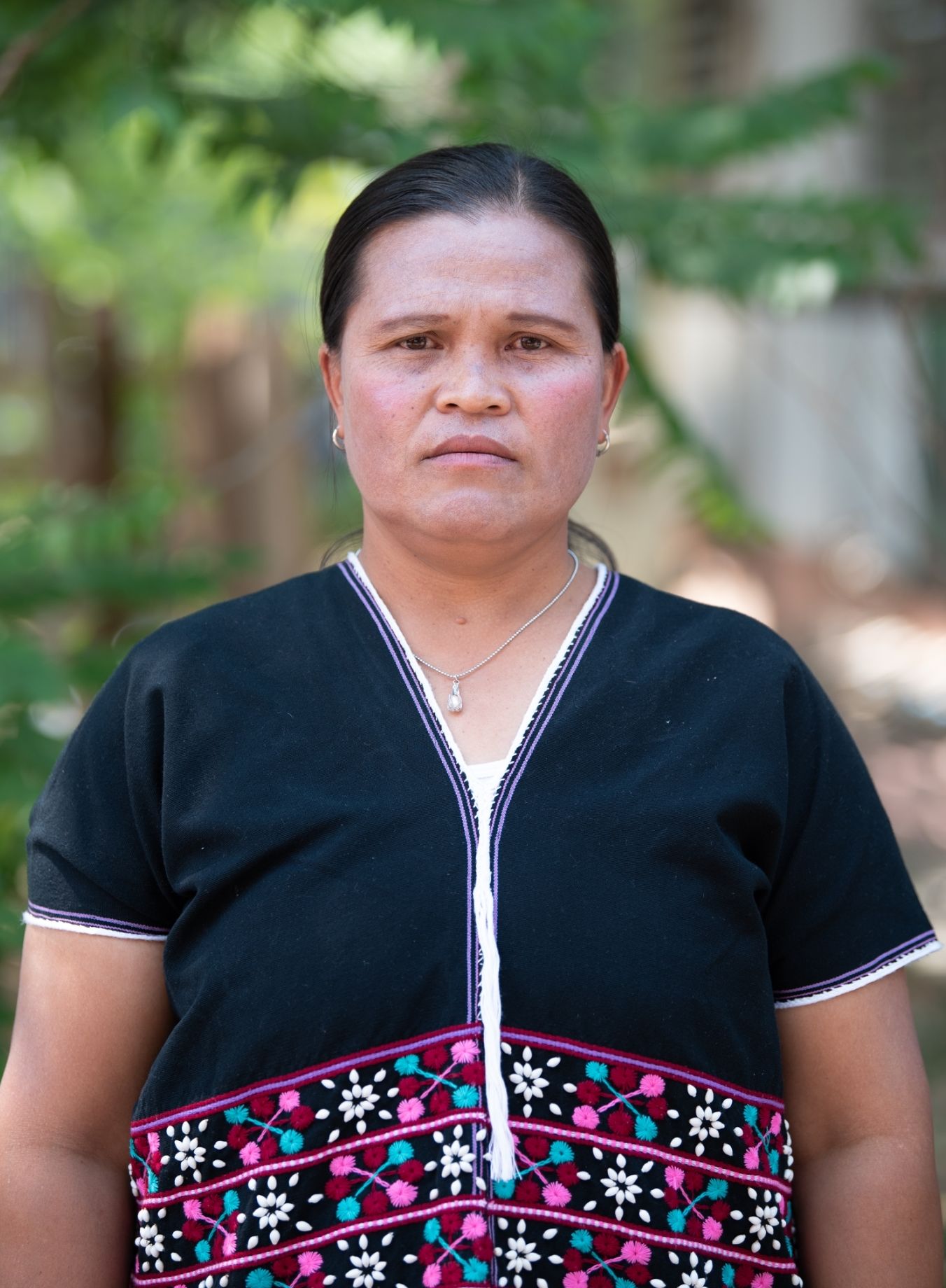 Photo: IPF
Photo: IPF
“I am a committee member of the Laweu Cultural Network, a member of the village committee and an Executive Board member of the Inter Mountain People’ Education and Culture in Thailand Association (IMPECT). I have engaged in this ICI subproject since its beginning and I have coordinated and shared information about this project with community leaders, women and youth, and we organized meetings to discuss and analyze the situation of the Laweu communities. Besides, we also compiled baseline information and development of a community work plan on natural resource and biodiversity management. I will continue taking part in the project implementation and would like to further strengthen women’s role on this issue.
The way of life of the Laweu peoples is very much interdependent with natural resources. Nature nourishes us and we have to take care of it. For this reason, we sustainably use natural resources and one example is the practice of rotational farming. Women in my community have played a key role in natural resource and biodiversity management. However, when it comes to decision making, women seem to have less importance than men. This practice should be changed, I think. We are now trying to send more women representatives to sit in the village committee so that they can take part more in community management and decision making.
Women have deeper knowledge on traditional seeds and plants and their knowledge would benefit and contribute to conservation projects.
ICI in my opinion is to strengthen our traditional way of life and livelihood practices. In addition to strengthening such practices and conserving natural resources, we need to incorporate other knowledge to help us as well, such as conducting land use surveys and doing community mapping. This requires strong collaboration both from village members and supportive allies such as local communities, academic institutions, government agencies, and media.
I think that to be able to push for direct IP access to funding, we have to affirm and promote the importance and roles of Indigenous Peoples on natural resource and biodiversity management; familiarize with and learn the necessary knowledge and skills required for project and financial management, which include - but are not limited to - project writing, presentation, monitoring, and reporting; and have access to information, including from and about donors.”
Meso-America
Guatemala and Panama: Sotz’il
Graciela Coy, Maya Q’eqchi’, President and Legal Representative of Asociación Ak’ Tenamit
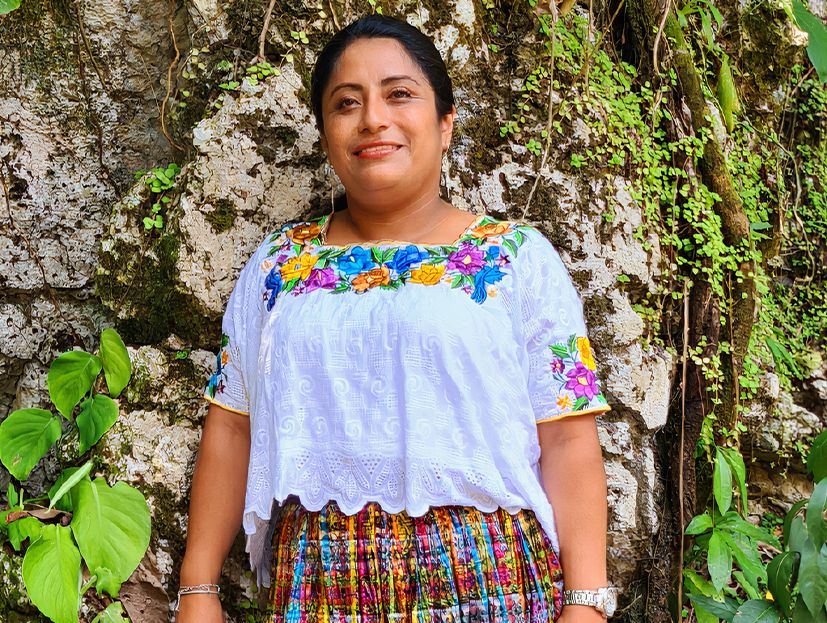 Photo: Graciela Coy
Photo: Graciela Coy
“Indigenous women are the ones who maintain and transmit traditional knowledge to new generations.
We are the basis of our Indigenous identity and culture, and we are part of the dynamization of the community economy.
As President of Ak’ Tenamit, I am part of the ICI Global Committee and of the board of directors of the Paq'uch project: Biocultural Management of Indigenous Territories Ru K'ux Abya supported by the Inclusive Conservation Initiative (ICI).
ICI is a good program that supports the use, management, and conservation of natural resources in Indigenous territories and strengthens our participation at the local, national and international levels.”
Disclaimer
Opinions expressed in posts featured on any Crossroads or other blogs and in related comments are those of the authors and do not necessarily reflect the opinions of IUCN or a consensus of its Member organisations.
IUCN moderates comments and reserves the right to remove posts that are deemed inappropriate, commercial in nature or unrelated to blog posts.
